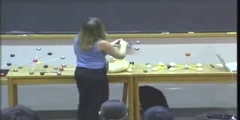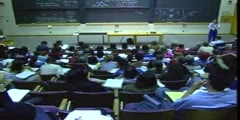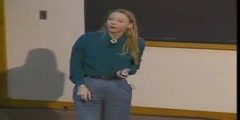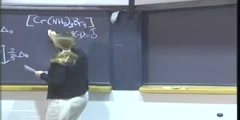Lec 13 - Marx's Theory of Class and Exploitation
"Lec 13 - Marx's Theory of Class and Exploitation" Foundations of Modern Social Thought (SOCY 151) In order to move from a theory of alienation to a theory of exploitation, Marx develops a concept of class and of the capitalist mode of production. He developed these in The Communist Manifesto, the Grundrisse and Das Kapital. Marx argues that what sets the capitalist mode of production apart from the commodity mode of production is not only the accumulation of money; the capitalist mode of production is characterized by the use of labor power as a commodity to create more value. The capitalist compensates the laborer enough for his labor power to reproduce the commodity (the labor power), but the laborers' power produces additional value: a surplus value for the owner. The worker is exploited when he does not keep or control the value created by his own labor power. Marx argues that the capitalist system forces people into one of two classes: the capitalist bourgeoisie or the proletariat class of wage laborers. However, this is not empirically accurate historically or in our contemporary moment; experience has demonstrated that a middle class—including artisans and agricultural workers who control their own labor power and products—that do not fit into Marx's model of the capitalist mode of production. 00:00 - Chapter 1. The More Familiar Karl Marx 09:14 - Chapter 2. Theory of Exploitation 38:49 - Chapter 3. Classes in History 45:00 - Chapter 4. How Many Classes? Complete course materials are available at the Open Yale Courses website: http://open.yale.edu/courses This course was recorded in Fall 2009.
Video is embedded from external source so embedding is not available.
Video is embedded from external source so download is not available.
Channels: Sociology
Tags: Lec 13 - Marx's Theory of Class and Exploitation
Uploaded by: yalemodsocialth ( Send Message ) on 14-09-2012.
Duration: 51m 13s
Here is the next lecture for this course
Lec 10 - Marx's Theory of Historical Mate ...
50:24 | 3150 viewsLec 11 - Marx's Theory of Historical Mate ...
48:53 | 3364 viewsLec 12 - Marx's Theory of History
51:30 | 3382 viewsLec 21 - Weber's Theory of Class
44:38 | 2856 viewsLec 9 - Marx's Theory of Alienation
48:04 | 2929 viewsLec 23 - Durkheim's Theory of Anomie
46:42 | 3211 viewsLec 1 - Introduction - Introduction to Th ...
39:29 | 3533 viewsChemical Science - The Shapes of Molecule ...
43:18 | 31974 viewsLec 17 - The Frankfurt School of Critical ...
51:37 | 3046 viewsLec 17 - Conceptual Foundations of Weber' ...
52:46 | 2766 viewsLec 3 - Measurements vs. Bits: Compressed ...
01:16:32 | 2702 viewsChemical Science - Molecular Orbital Theo ...
50:51 | 32537 viewsThe valence bond theory
49:54 | 23969 viewsChemical Science - Transition Metals: Cry ...
40:23 | 13625 viewsAn unified theory of everything
02:11 | 8124 viewsNo content is added to this lecture.
This video is a part of a lecture series from of Yale
Lecture list for this course
Lec 2 -Hobbes: Authority, Human Rights and Social Order
Lec 3 -Locke: Equality, Freedom, Property and the Right to Dissent
Lec 4 -The Division of Powers- Montesquieu
Lec 5 - Rousseau: Popular Sovereignty and General Will
Lec 6 - Rousseau on State of Nature and Education
Lec 7 - Utilitarianism and Liberty, John Stuart Mill
Lec 8 - Smith: The Invisible Hand
Lec 9 - Marx's Theory of Alienation
Lec 10 - Marx's Theory of Historical Materialism (1)
Lec 11 - Marx's Theory of Historical Materialism (cont.)
Lec 12 - Marx's Theory of History
Lec 14 - Nietzsche on Power, Knowledge and Morality
Lec 15 - Freud on Sexuality and Civilization
Lec 16 - Weber on Protestantism and Capitalism
Lec 17 - Conceptual Foundations of Weber's Theory of Domination
Lec 18 - Weber on Traditional Authority
Lec 19 - Weber on Charismatic Authority
Lec 20 - Weber on Legal-Rational Authority
Lec 21 - Weber's Theory of Class
Lec 22 - Durkheim and Types of Social Solidarity
















